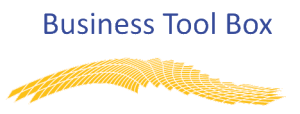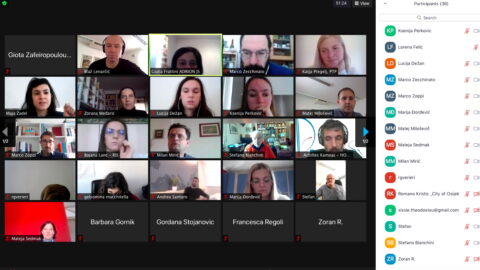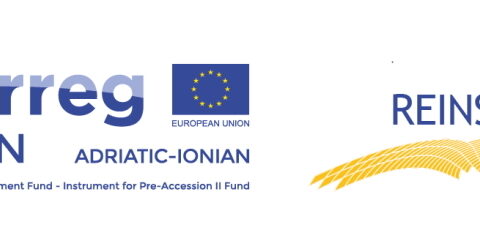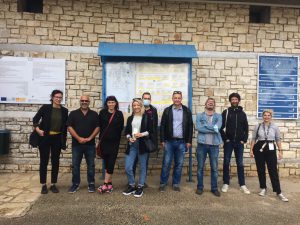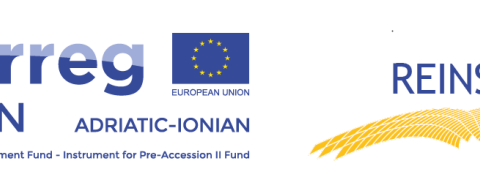Between 28th of September 2021 and 1st of October 2021 the Project Partners of the REInSER project have been hosted by the Hellenic Open University in Ioannina, Greece, for the 1st study trip. This offered us the occasion to further investigate and discuss the opportunities and challenges of integrating asylum seekers and refugees through social entrepreneurship and of extending good practices to other areas.
With this aim, the program focused on the experience of Greece in this sector, but gave also the opportunity to reflect on the topic in a larger scale with the interventions of external speakers, such as Attila Von Unruh from Team U (Germany), who discussed the issue of transferability of social entrepreneurships, Francesco Savoia from the University of Bologna, who gave a presentation on the scholarship debate on social innovation, and Vasilis Kostakis from Harvard, who presented the opportunities offered by technologies in addressing social inequalities.
The program was enriched by a series of presentations of good practices of social entrepreneurship and refugees’ integration from Greece: the High Mountains, a social cooperative that hosted refugees’ children in summer camps; the activities of AN.KA on the economic integration of refugees in the city of Karditsa; the project e-Trikala for the development of smart cities; a project implemented by InterSOS Hellas on Refugees’ employability; the social enterprise Soffa, employing refugees in the production of socially sustainable clothes; the social cooperative Staramaki, producing drinking straws from natural wheat stems; Archipelagos, a social enterprise aimed at creating employment opportunities for vulnerable groups; Emantes, a social enterprise supporting LGBTIQ refugees.
The study visit gave the opportunity to present and discuss also best practices identified in other countries of the REInSER project: Mygrants, a digital platform supporting the labor inclusion of refugees, and Sfrutta Zero, a social cooperative employing refugees in the production of sustainable agricultural products, both from Italy; from Slovenia Migrantour, an association promoting alternative touristic tours run by migrants and refugees; Sigurna Ruka from Bosnia and Herzegovina, a social enterprise employing vulnerable women; and Mama’s Week Kitchen, an intercultural restaurant and meeting point run by a refugee in Croatia.
We then had also the opportunity to take part in two visits. The first brought us to two local reception centers for asylum seekers and refugees, where we encountered representatives of the various national groups hosted in these structures who introduced us to the numerous difficulties encountered in the integration process. In the same occasion, we visited the inspiring Habibi Works, a structure created and run by international volunteers where asylum seekers and refugees can engage in a series of workshops and freely create or repair everyday objects. During the second visit, we had the opportunity to know something more about the cooperative the High Mountains and to visit the beautiful region of Eastern Zagori.
The rich program of this study trip allowed us to get in touch with a series of inspiring initiatives that can represent the base for a further reflection on the potential of social economy not only for the labor inclusion of migrants, but also for addressing social and economic inequalities in general.
